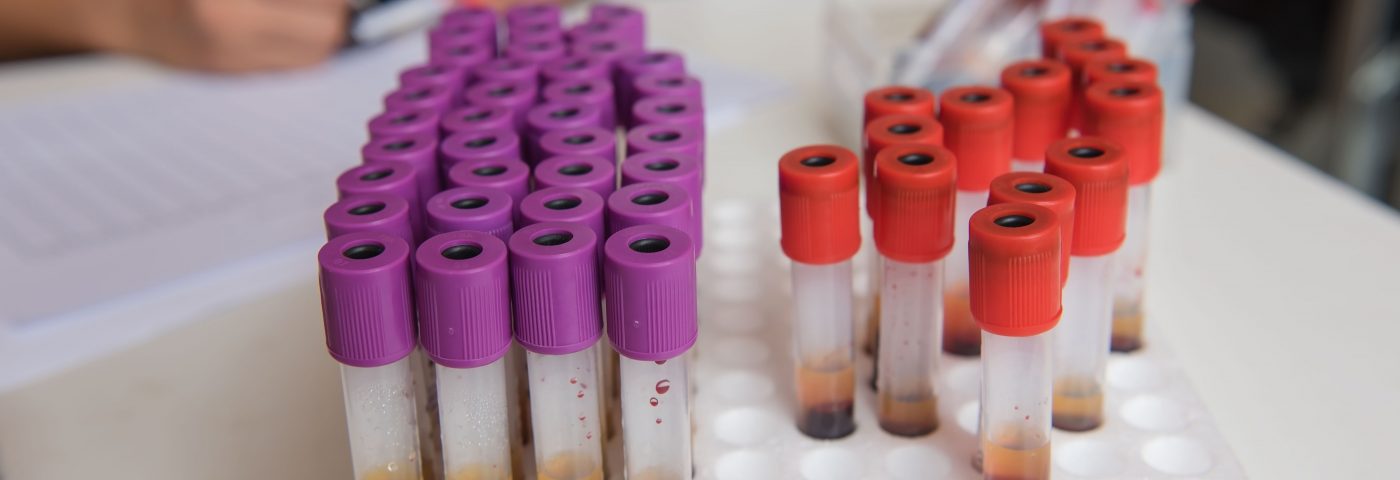Analyses of circulating tumor DNA (ctDNA) — DNA from cancer cells circulating in the bloodstream — in blood samples can be used to predict which men with advanced prostate cancer are more likely to respond to treatment and who is more likely to have the disease return later on.
The new, non-invasive test is less intrusive and more convenient than conventional tissue biopsies, and has the potential to replace several methods currently used to characterize and monitor prostate cancer.
It also offers patients the possibility of being able to use tailored therapies and to avoid or rapidly discontinue treatment with medications that are unlikely to be beneficial.
These are the findings of a new study, “Circulating tumor DNA (ctDNA) dynamics associate with treatment response and radiological progression-free survival (rPFS): Analyses from a randomized phase II trial in metastatic castration-resistant prostate cancer (mCRPC).”
It was carried out by investigators from the Institute of Cancer Research (ICR) and The Royal Marsden NHS Foundation Trust, both in the U.K. The data recently were shared in an oral presentation at the 2020 American Society of Clinical Oncology (ASCO) Virtual Scientific Program, held online.
Blood samples were collected from 216 men with metastatic castration-resistant prostate cancer (mCRPC) who were participating in the A.MARTIN Phase 1/2 trial (NCT01485861). The trial assessed the effects of Zytiga (abiraterone acetate) when used alone or in combination with ipatasertib.
Patient samples collected at three time points — before, during, and after the participants completed treatment — were used to perform a type of blood test called a liquid biopsy, used to assess ctDNA levels.
The results showed that men whose samples tested positive for ctDNA at the start of treatment tended to worsen and show signs of disease progression approximately 2.5 months earlier than those who tested negative for ctDNA at the beginning of the trial.
Sample analyses done during the trial revealed that ctDNA levels tended to decrease with treatment. The rate at which ctDNA levels dropped during therapy was stronger among those receiving Zytiga in combination with ipatasertib (56.3%) as compared with those receiving Zytiga alone (24.4%).
The men who responded better to treatment had the largest reductions in ctDNA levels, the study also found. Among them were participants attaining complete responses (23.4% ctDNA reduction) and partial responses (16.3% reduction). Of note, complete and partial responses refer to total and partial cancer eradication.
Conversely, men whose disease remained stable saw just a 4.1% reduction of their ctDNA levels. Those whose disease progressed experienced a reduction of only 1.3%.
Finally, the investigators analyzed in more detail the DNA obtained from patient blood samples. Certain genetic alterations seemed to be associated with drug resistance and, consequently, with cancer relapse, the analysis determined. Some of the alterations were found in genes known to be involved in cancer, including TP53, PTEN, and PI3K/AKT.
“Our study shows that a simple blood test could help us track how cancer evolves and responds to treatment — initially as part of clinical trials and eventually in routine care,” Johann de Bono, professor of experimental cancer medicine at ICR and consultant medical oncologist at The Royal Marsden, said in a press release.
“These so-called liquid biopsy tests are minimally invasive, cost-effective and can be performed often and with ease. Tracking prostate cancer with a blood test instead of a painful surgical biopsy could significantly improve patients’ quality of life,” de Bono added.
The research team is now planning to incorporate liquid biopsies in other clinical trials, to further evaluate their potential benefits at estimating patients’ responses to treatment.
“Our exciting work to develop liquid biopsies is starting to have a real impact on how doctors can track the way cancers evolve and respond to treatment,” said Paul Workman, CEO of ICR.
“These simple blood tests detect traces of cancer circulating in the bloodstream and help us anticipate cancer’s next move. They can help doctors come up with personalised treatment plans and to stay one step ahead of the disease,” Workman said. “This study showcases the value of liquid biopsies for guiding therapy. They are a faster, kinder, more flexible alternative to traditional tissue biopsies and are set to become a gold standard for cancer treatment.”
The study received funds from Roche and Genentech – which also sponsored the trial – as well as Cancer Research UK, Prostate Cancer UK, the Movember Foundation, and the Prostate Cancer Foundation.

